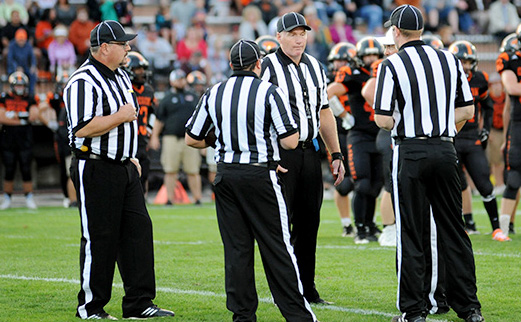UT Athletic Director Mike O’Brien expressed disappointment in the NCAA’s ruling, noting that the men’s basketball program has made tremendous strides in the classroom under head coach Tod Kowalczyk.
“The University of Toledo has a very high academic standard for our student-athletes, so we are very supportive of the academic reforms passed by the NCAA,” said Mike O’Brien. “However, we are very disappointed that our appeal of the post-season ban for our men’s basketball program was denied. It is simply a question of fairness. The recent change in legislation with respect to post-season bans was passed by the NCAA last fall and made effective for the 2012-13 season. We question as to why our current student-athletes should be penalized next season without giving us a chance to use the most recent APR data from the 2011-12 school year.”
APR is a measurement used by the NCAA to judge a team’s academic performance. Teams lose APR points if student-athletes fail to graduate, become academically ineligible or leave the program. Under new rules passed by CAP in October of 2011, teams are banned from post-season play if their four-year APR score is below 900 or two-year score is below 930. The UT men’s basketball team had an APR score of 869 for the four years from 2007-08 through 2010-11, and a 917 score for the two years from 2009-11. As a result, the Rockets will not be eligible for post-season play for the 2012-13 season. The ban is a one-year penalty and applies only for the 2012-13 season.
In addition, the UT men’s basketball program will have its weekly practice time reduced by four hours per week and have to reduce its regular-season schedule by three games for the 2012-13 season. However, the Rockets are not facing any reductions in scholarship and will have the full complement of 13 scholarships for the 2012-13 season.
UT President Lloyd Jacobs said that the NCAA’s denial of appeal should not overshadow the impressive academic performance of the current members of the men’s basketball program.
“The University of Toledo Athletics Department has excellent leadership in place with respect to the academic performance of our student-athletes,” said Jacobs. “Under the guidance of Athletic Director Mike O’Brien, our student-athletes have established a remarkable standard of academic achievement. Our men’s basketball program has made tremendous strides in the classroom since the arrival of Tod Kowalczyk as our head coach two years ago. We are very proud of the academic performance of our student-athletes, which makes the NCAA’s ruling all the more disappointing.”
O’Brien noted that the UT men’s basketball program had an APR of 939 in Kowalczyk’s first season and a 962 mark through the first semester of 2011-12.
“When we hired Tod Kowalczyk we knew that in addition to being an excellent coach he had a strong commitment to academic integrity,” said O’Brien. “He has definitely turned the program around, both on and off the court.”
Prior to his appointment at UT, Kowalczyk was the head coach at UW-Green Bay from 2002-10. During Kowalczyk’s tenure at UWGB, every single student-athlete who completed his athletic eligibility received his diploma. In addition, the APR of the men’s basketball program in Kowalczyk’s final year with the Phoenix was 964, which was in the top 20 percent nationally.
Kowalczyk said he is in favor of the academic reforms passed by the NCAA, but agrees with O’Brien that the current system should put more emphasis on the academic performance of current student-athletes as opposed to players who have not been a part of the program for several years. He said that if data from the 2011-12 school year were included in the APR score, the UT men’s basketball program would not be facing a post-season ban next season. Data from the 2011-12 season will be available by early September but at this point is not included as part of the NCAA’s evaluation for the 2012-13 season.
“I fully support the NCAA and its efforts to improve academic integrity, but I don’t believe coaches and student-athletes who are doing the right thing should be penalized like this,” said Kowalczyk. “I feel the NCAA should use APR numbers from the 2011-12 academic year to make a determination of the postseason status for 2013. By using the most recent data, you come closer to holding current student-athletes accountable for their academic performance.”
Kowalczyk added that he is hopeful that the NCAA’s Committee on Academic Performance (CAP) will change course and allow programs to include the most recent APR data (2011-12) in determining penalties for the 2013 post-season. CAP is scheduled to meet later this month and again in July.
UT Men’s Basketball Yearly APR Scores (2007-11)
2007-08 826
2008-09 813
2009-10 896
2010-11 939
2011-12 962 (though 2011 Fall Semester)
Tod Kowalczyk’s Yearly APR Scores as Head Coach
UW-Green Bay (2002-10)
2002-03 951
2003-04 917
2004-05 957
2005/06 980
2006-07 980
2007-08 946
2008-09 957
2009-10 963
Toledo (2010-11)
2010-11 939
2011-12 962 (though 2011 Fall Semester)
NCAA APR Two-Year “Cut Point” For Post-Season Ban: Two-Year: 930; Four-Year: 900
NCAA APR Two-Year “Cut Point” For Other Penalties: Four-Year: 930
UT Men’s Basketball Four-Year APR Score (2007-11): 869
UT Men’s Basketball Two-Year APR Score (2009-11): 917







